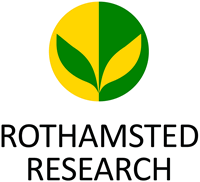Dr J Bell, Dr R Morales Hojas
No more applications being accepted
Competition Funded PhD Project (European/UK Students Only)
About the Project
The dramatic decline in abundances of macro-moths in Britain, two-thirds over the last 40 years, has been broadly synchronous with the increase in levels of artificial nighttime lighting (e.g. from streetlighting). Whilst there has been much speculation over the link, with many moth species undoubtedly being drawn to streetlights, a proper evaluation of the role of lighting in this decline has remained wanting. This project will address this shortfall, providing the science that will be better able to support innovations to the light industry to reduce environmental impacts. The student will use molecular techniques to estimate gene flow and identify a suite of candidate genes involved in the flight-to-light behaviour to understand whether an evolutionary shift is apparent in urban areas. The student will then develop a set of models using the world-class Rothamsted Insect Survey’s network of 500 light traps to estimate the effects of light between polluted and unpolluted sites. This is an exciting opportunity to work on an environmental problem that could have profound implications for the light industry as well as deliver first class science. The student will split their time between fieldwork and the laboratory and will largely be based at Rothamsted Research but will interact heavily with activities that will be based at Exeter. An interest in entomology would be advantageous and skills in statistical modelling and molecular techniques would be looked upon favourably.
Funding Notes
Applicants must have, or be about to obtain, a First or Upper Second Class UK Honours degree, or the equivalent qualifications gained outside the UK, in an appropriate area of science or technology.
Funding provides a stipend at the standard UKRI rate (currently £14,777), research and training costs and UK/EU tuition fees for 4 years.
UK and EU applicants who have been residing in the UK since September 2016 will be eligible for a full award. Non UK/EU applicants are not eligible for funding.

 Continue with Facebook
Continue with Facebook

